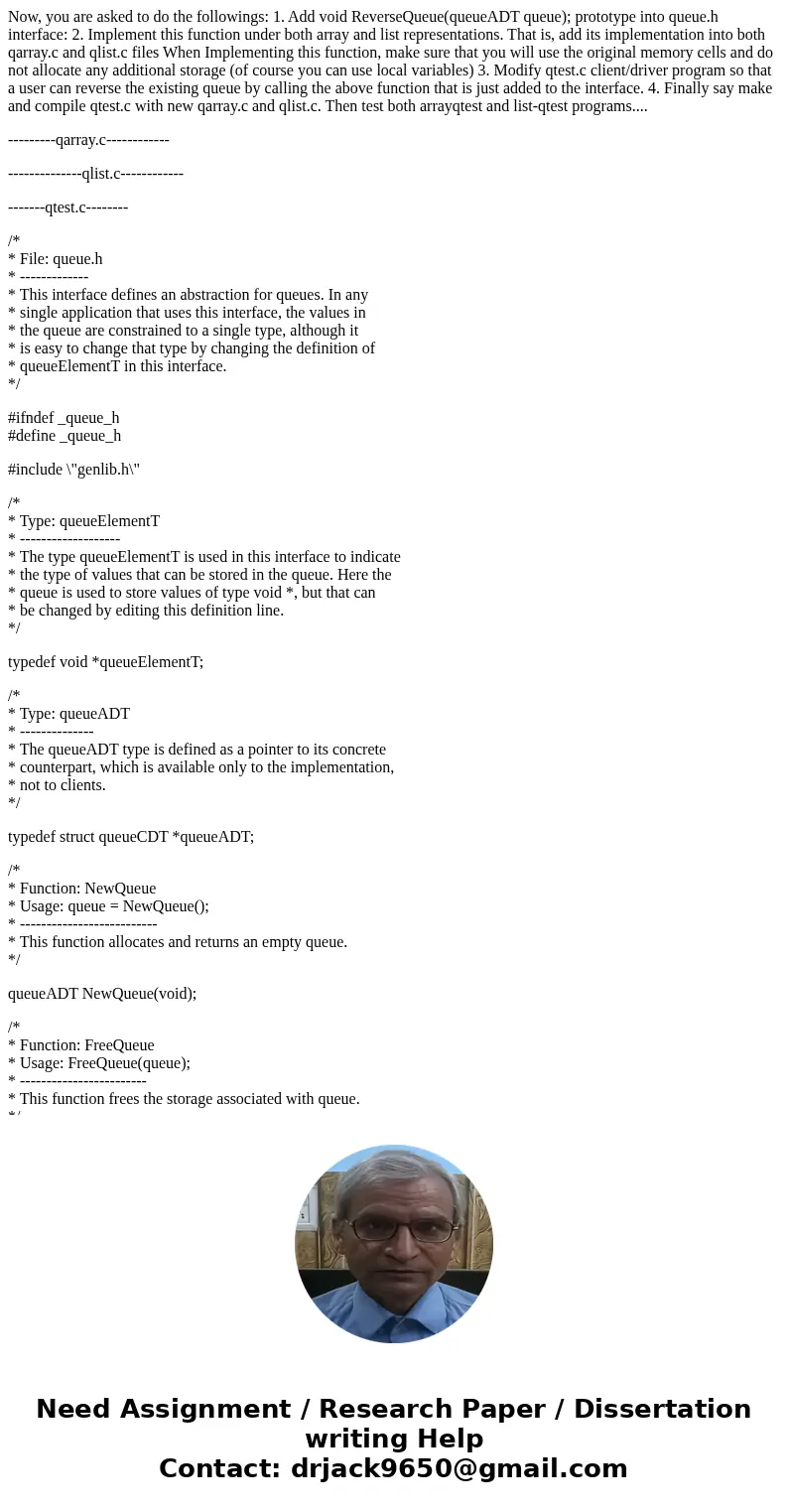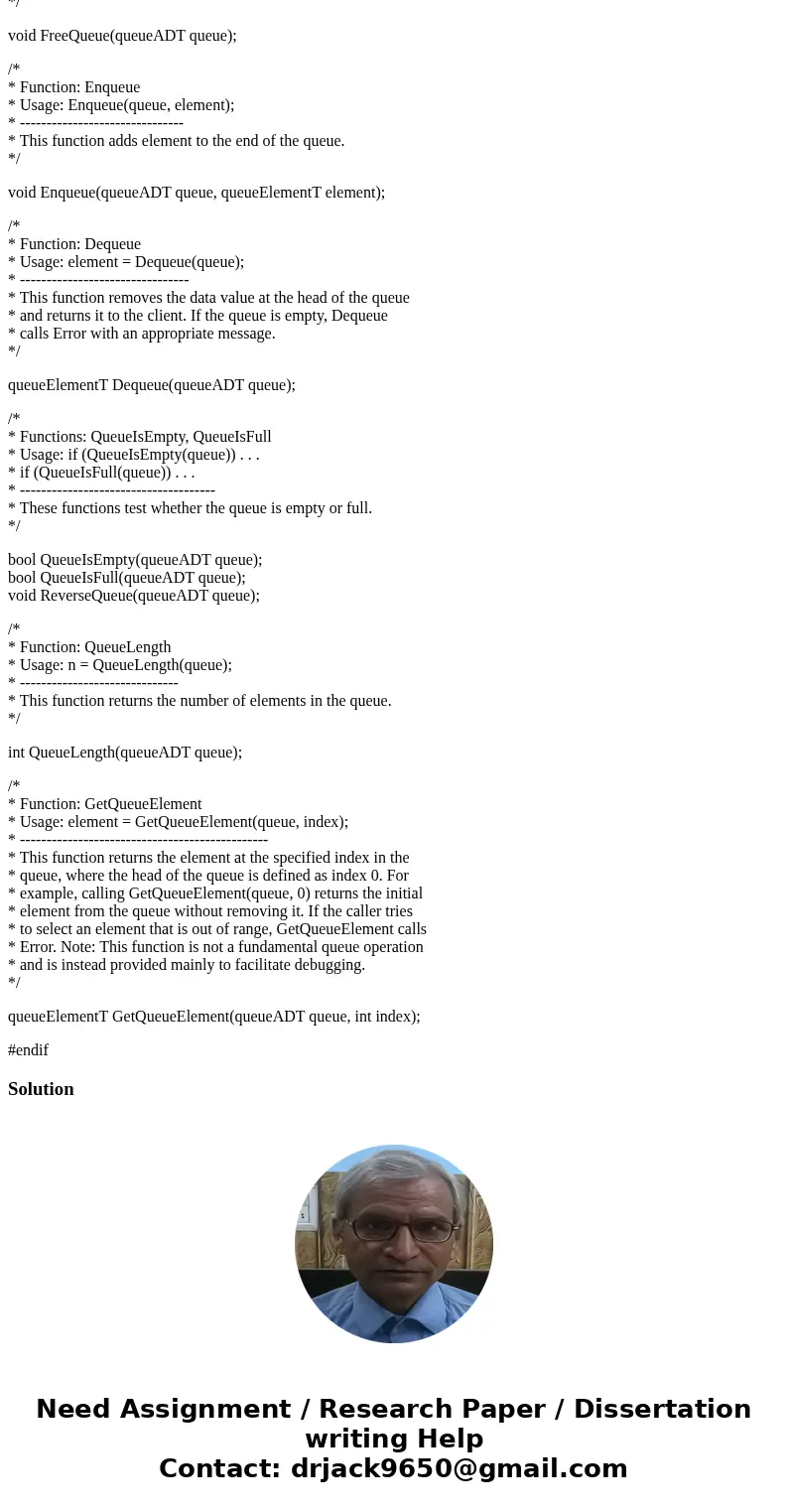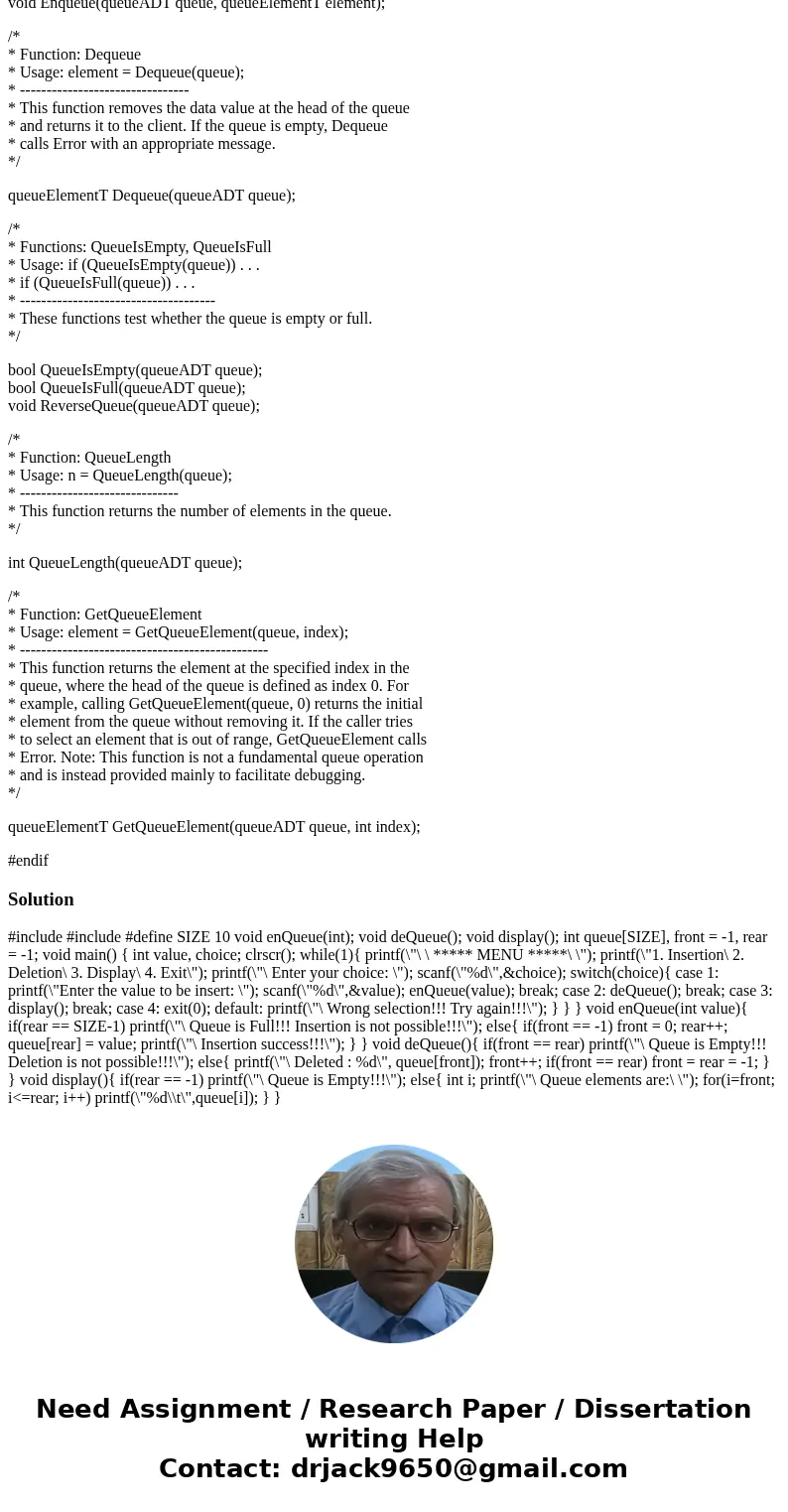Now you are asked to do the followings 1 Add void ReverseQue
Now, you are asked to do the followings: 1. Add void ReverseQueue(queueADT queue); prototype into queue.h interface: 2. Implement this function under both array and list representations. That is, add its implementation into both qarray.c and qlist.c files When Implementing this function, make sure that you will use the original memory cells and do not allocate any additional storage (of course you can use local variables) 3. Modify qtest.c client/driver program so that a user can reverse the existing queue by calling the above function that is just added to the interface. 4. Finally say make and compile qtest.c with new qarray.c and qlist.c. Then test both arrayqtest and list-qtest programs....
---------qarray.c------------
--------------qlist.c------------
-------qtest.c--------
/*
* File: queue.h
* -------------
* This interface defines an abstraction for queues. In any
* single application that uses this interface, the values in
* the queue are constrained to a single type, although it
* is easy to change that type by changing the definition of
* queueElementT in this interface.
*/
#ifndef _queue_h
#define _queue_h
#include \"genlib.h\"
/*
* Type: queueElementT
* -------------------
* The type queueElementT is used in this interface to indicate
* the type of values that can be stored in the queue. Here the
* queue is used to store values of type void *, but that can
* be changed by editing this definition line.
*/
typedef void *queueElementT;
/*
* Type: queueADT
* --------------
* The queueADT type is defined as a pointer to its concrete
* counterpart, which is available only to the implementation,
* not to clients.
*/
typedef struct queueCDT *queueADT;
/*
* Function: NewQueue
* Usage: queue = NewQueue();
* --------------------------
* This function allocates and returns an empty queue.
*/
queueADT NewQueue(void);
/*
* Function: FreeQueue
* Usage: FreeQueue(queue);
* ------------------------
* This function frees the storage associated with queue.
*/
void FreeQueue(queueADT queue);
/*
* Function: Enqueue
* Usage: Enqueue(queue, element);
* -------------------------------
* This function adds element to the end of the queue.
*/
void Enqueue(queueADT queue, queueElementT element);
/*
* Function: Dequeue
* Usage: element = Dequeue(queue);
* --------------------------------
* This function removes the data value at the head of the queue
* and returns it to the client. If the queue is empty, Dequeue
* calls Error with an appropriate message.
*/
queueElementT Dequeue(queueADT queue);
/*
* Functions: QueueIsEmpty, QueueIsFull
* Usage: if (QueueIsEmpty(queue)) . . .
* if (QueueIsFull(queue)) . . .
* -------------------------------------
* These functions test whether the queue is empty or full.
*/
bool QueueIsEmpty(queueADT queue);
bool QueueIsFull(queueADT queue);
void ReverseQueue(queueADT queue);
/*
* Function: QueueLength
* Usage: n = QueueLength(queue);
* ------------------------------
* This function returns the number of elements in the queue.
*/
int QueueLength(queueADT queue);
/*
* Function: GetQueueElement
* Usage: element = GetQueueElement(queue, index);
* -----------------------------------------------
* This function returns the element at the specified index in the
* queue, where the head of the queue is defined as index 0. For
* example, calling GetQueueElement(queue, 0) returns the initial
* element from the queue without removing it. If the caller tries
* to select an element that is out of range, GetQueueElement calls
* Error. Note: This function is not a fundamental queue operation
* and is instead provided mainly to facilitate debugging.
*/
queueElementT GetQueueElement(queueADT queue, int index);
#endif
Solution
#include


 Homework Sourse
Homework Sourse